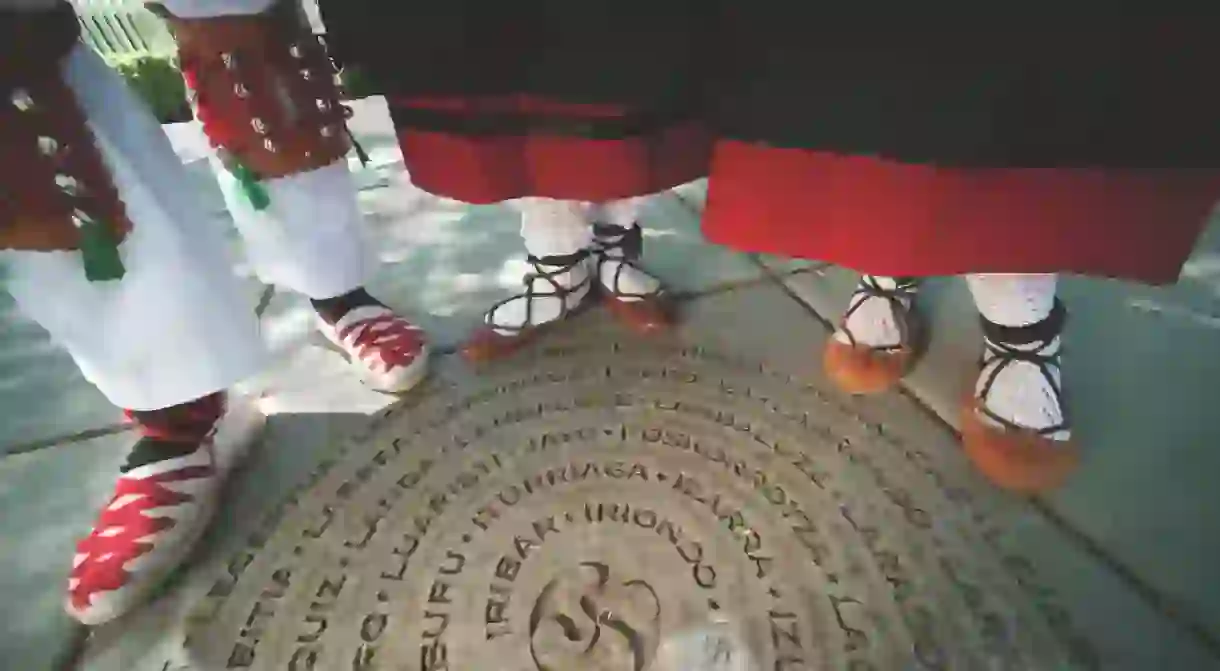An Introduction to Boise’s Basque Community

When most people envision Boise, Idaho, paella and fronton courts probably don’t immediately come to mind. Yet the capital is home to the largest concentration of Basque people outside of Spain, and a stroll through the thriving community reveals a world of culture, history and tradition.
The pilgrimage to Idaho
The Basque Country has long been anchored in the western Pyrenees region of northern Spain and southern France. Here, peaceful ranchers and craftsmen formed a community unique among its European neighbors.
The journey to Idaho’s capital city has been a steady process. Immigration began in the late 1800s, as Basque people found more lucrative opportunities in the western United States, initially for mining and then for ranching and sheepherding. Boise, in particular, was a region where the Basque people could let their culture thrive by herding sheep and operating boarding houses. Most importantly, though, it was a place where they could exist unthreatened.
It was during Francisco Franco’s reign in Spain that Basque people sought escape in droves. Enraged by their unwillingness to unify with the rest of Spain, Franco banned Euskera in public, withheld funds for the region and ultimately, with the aid of Nazi Germany, carpet bombed the city of Guernica during the Spanish Civil War, leaving hundreds of civilians dead and the community in tatters. The infamous attack on an innocent city like Guernica, one without any real military presence, rattled the world and left an entire culture reeling. The Basque people needed a safe place where they could thrive.
More and more Basque people would move to Idaho, where they had already established a presence. Nowadays, Boise’s Basque district is a symbol of resilience and survival for an enduring community.

Finding rebirth in an adopted hometown
The heart of the Basque community is the Basque Block in downtown Boise, where the Basque flag hangs right alongside the American one. It’s a stretch of Grove Street lined with boarding houses and businesses. The block’s sidewalks are even engraved with the names of Boise’s original Basque immigrants, not unlike Hollywood’s Walk of Fame, but for a culture.
The most symbolic part of the block, though, is a humble-looking tree. After the devastating bombing of Guernica, a miraculous remnant was a longstanding oak tree that quickly became a symbol of resilience and hope for the Basque people. A sapling from that tree lives on in downtown Boise, now fully grown and indicative of a culture’s incredible fight for survival.

Paella, pala and a sheepherders ball
The Basque Block is the only Basque museum in the U.S., delving into local lore with a sheepherding tent and tours of a traditional Basque boarding house. Visit the Anduiza Building, a former boarding house, to check out the fronton court. A rare breed in the U.S., it provides a home for traditional Basque sports like handball and pala. There’s also the Basque Center, a community hub that hosts traditional dance groups, the music-filled San Inazio Festival held in honor of the patron saint of the Basques and the annual Sheepherders Ball Dinner and Dance, which raises funds for regional Basque families. The Basque Market, on the other hand, contains the largest collection of Basque wine in the state, along with myriad ingredients and provisions native to the Basque Country. Famously, the market prepares hulking portions of paella right on the sidewalk twice-weekly for lunchtime passersby.
Still hungry? Check out Leku Ona for a taste of Basque fine dining in a chic, gallery-like space. Here, croquettes, paella, fried cod, beef tongue, stuffed squid and tripe take guests on a sensory journey. For something more casual, the pub-like Bar Gernika serves an array of wine, beer, cider and snacks, including chorizo, tortilla de patatas, pork loin sandwiches and cinnamon-flecked rice pudding. Don’t miss the kalimotxo, a classic Basque beverage that combines red wine and cola.














